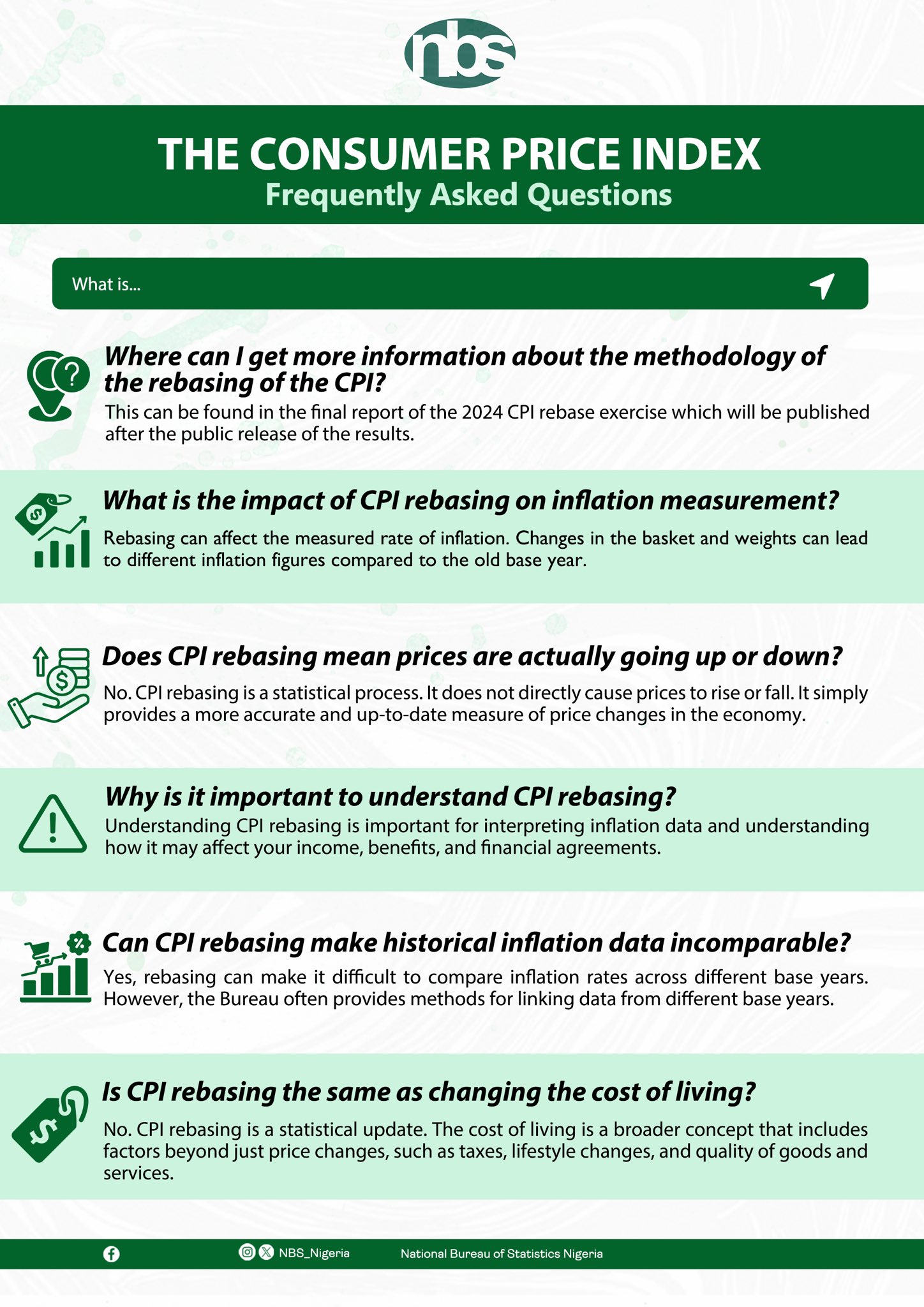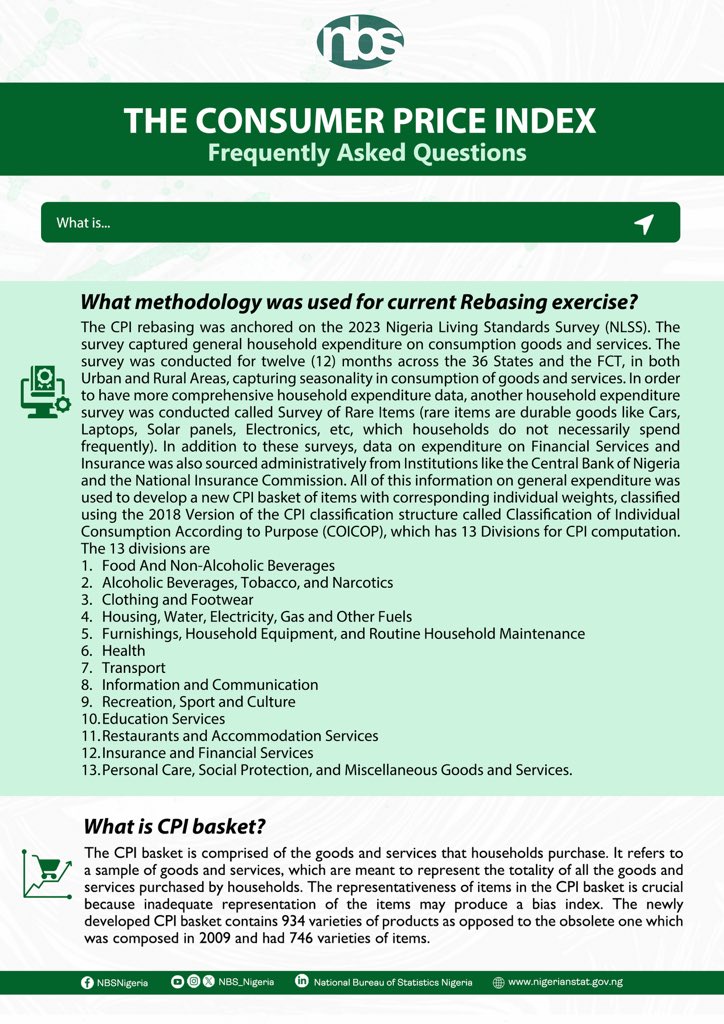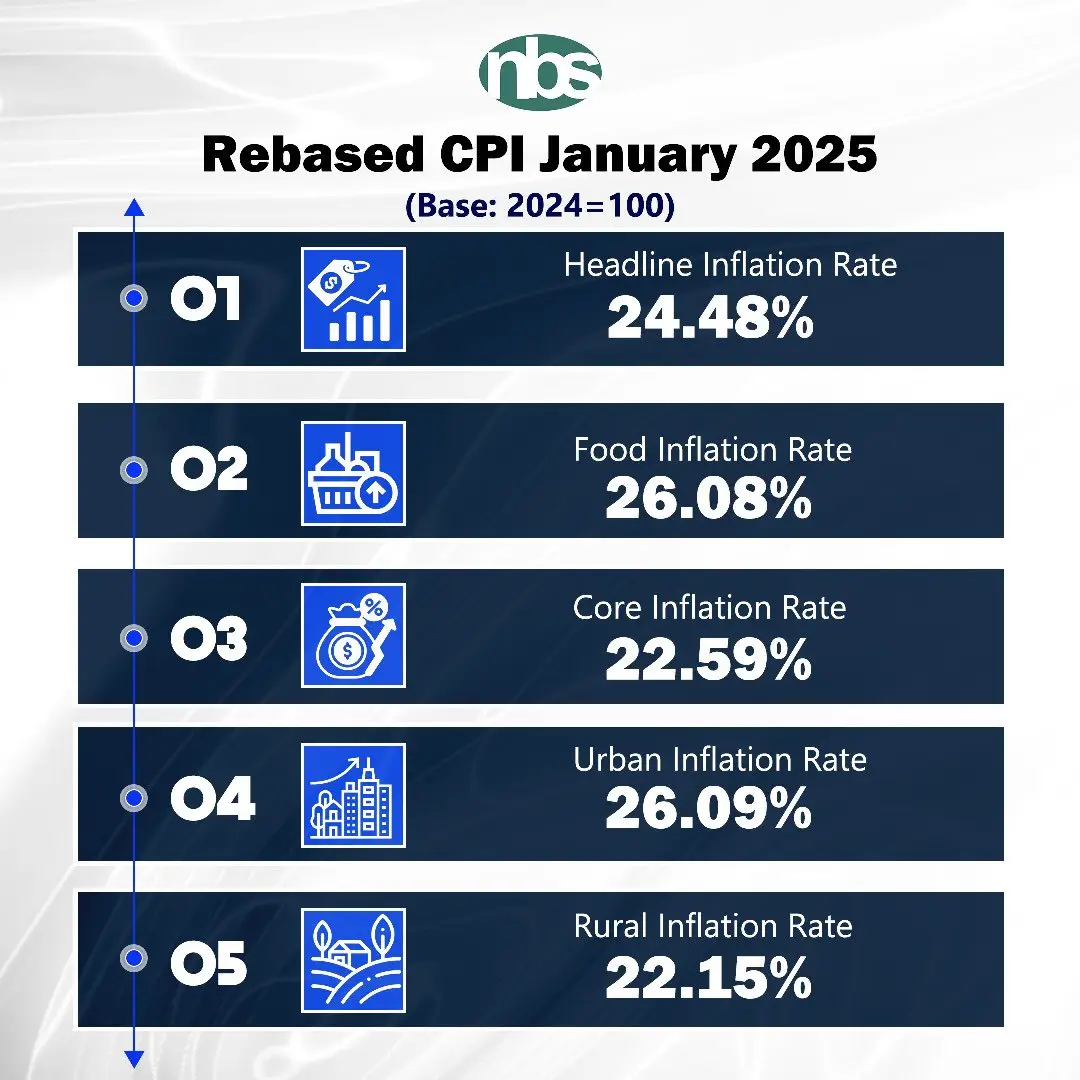
Nigeria’s inflation rate fell to 24.48 per cent in January 2025 from 34.80 per cent in December 2024. The National Bureau of Statistics (NBS) announced the drop after adjusting how inflation is calculated.
Statistician-General Adeyemi Adeniran said the new method gives a clearer picture of price changes. It updates the reference year and adjusts the basket of goods and services used to measure inflation. NBS, in a recent explanation, noted that the new figures do not imply that the cost of living is improving.


Urban inflation stood at 26.09 per cent, while rural inflation was 22.15 per cent. Food inflation dropped to 26.08 per cent from 39.84 per cent in December. Core inflation, which excludes food and energy prices, fell to 22.59 per cent.
Adeniran said price increases were mainly driven by food, transport, and accommodation services. The NBS will publish new indices to track farm produce, energy, services, goods, and imported food.
Despite the decline in the inflation rate, millions of Nigerians continue to struggle with soaring living costs. The removal of petrol subsidies in 2023 sent transport and food prices soaring, pushing more people into poverty. A sharp currency devaluation has contributed to the hardships, as imported goods and essential commodities are more expensive.
Many small businesses have shut down, while those still operating face higher production costs due to rising fuel and electricity prices. In July 2023, President Tinubu’s government declared a state of emergency on food insecurity and promised interventions to lower food prices. However, insecurity, poor infrastructure, and extreme weather have disrupted agricultural production and kept food prices at an all-time high.
Electricity tariffs, healthcare costs, school fees and telecommunications tariffs have also risen, further straining households. Although the government has introduced palliative measures in the past, it has done little to ease the burden on ordinary Nigerians.
Read More: Manufacturers Association Says “Sector Is on Its Last Breath,” Tells FG to Stop Interest Rate Hikes
About The Author
Related Articles
AES Condemns Niamey Airport Attack, Warns of Coordinated Destabilisation
The Alliance of Sahel States has strongly condemned the armed attack on...
ByWest Africa WeeklyFebruary 2, 2026Mali Cedes Strategic Land to Guinea to Deepen Trade Cooperation
Mali has approved the transfer of a strategic parcel of land to...
ByWest Africa WeeklyFebruary 2, 2026Senegal to Appeal CAF Sanctions After AFCON Final Controversy
Senegal has announced plans to formally appeal the sanctions imposed by the...
ByWest Africa WeeklyFebruary 2, 2026Burkina Faso Takes Legal Step Toward Nuclear Energy Development
Burkina Faso has voted to join the Vienna Convention on Civil Liability...
ByWest Africa WeeklyFebruary 2, 2026













Leave a comment